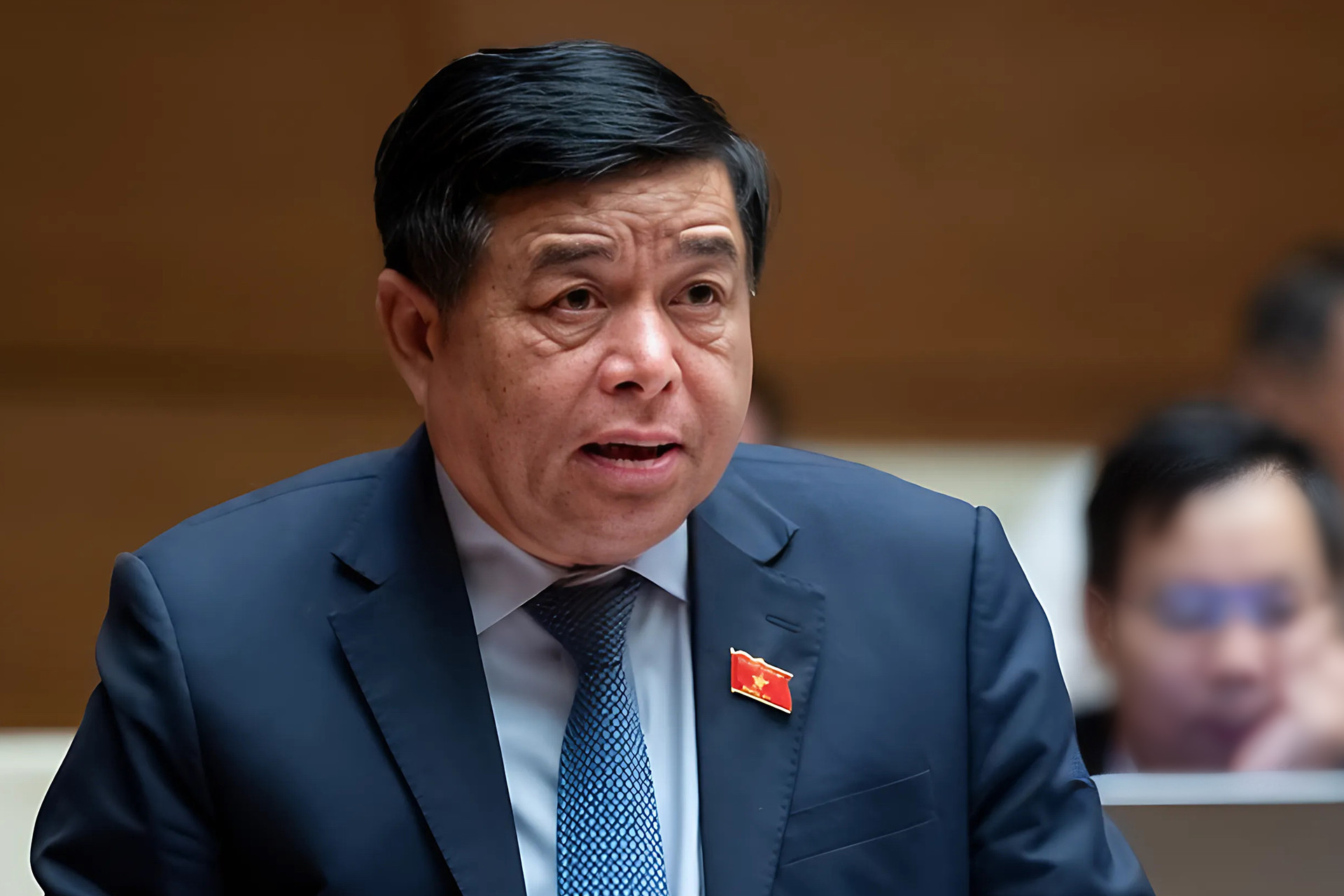
Regarding the National Assembly draft Resolution on mechanisms and policies for private sector development, discussed on May 15, Finance Minister Nguyen Van Thang stated that both the National Assembly and Government resolutions aim to institutionalize Politburo Resolution 68 on private sector development.
The resolution, signed by Party Chief To Lam, specifies important measures to develop the private sector which is now considered the most important driving force of the national economy.
According to Thang, the draft Resolution targets enterprises, household businesses, and related organizations and individuals.
The drafting committee focuses on designing mechanisms and policies to harmonize the benefits of enterprises, citizens, and various subjects.
Thang cited the example of treating household businesses and small and medium enterprises (SMEs), noting that the drafting agency carefully studied this issue.
The aim is to ensure tailored support programs and policies for each group, enabling household businesses to "grow" and transition to enterprises, and SMEs to develop and scale up into medium and large enterprises.
"Thus, this policy includes support for both medium and large enterprises. We’re concerned that overly high incentives for household businesses and SMEs might discourage them from growing," Thang said.
Therefore, the Ministry of Finance (MOF) wants to design policies to offer bigger incentives for larger SMEs.
"There must be a clear treatment for household businesses to prevent unfair exploitation and ensure higher transparency. For instance, abolishing the fixed tax scheme will not only ease the burden on them but also ensure transparent tax compliance," Thang said.
MOF has mandated the issuance of e-invoices via connected cash registers. After a pilot period, tax revenue increased significantly, further ensuring transparency for household businesses.
"We offer incentives for household businesses transitioning to enterprises, including support for renting or purchasing digital platforms and training software. The Ministry will revise accounting and bookkeeping regulations, simplifying conditions to avoid causing difficulties for business households which want to turn into enterprises, and at the same time provide tax support, especially exemption from income tax," Thang said.
Assigning important projects to businesses
Discussing the draft Resolution, Deputy Prime Minister Nguyen Chi Dung emphasized that policy designers must carefully consider tentative policies to maximize support for private enterprises and not create inequality in comparison with other economic sectors or break international commitments.
On facilitating private enterprises to participate in major national projects, Dung believes that it is necessary to take bold steps by assigning important projects to enterprises.
For example, in high-speed railway development, if the state does not place orders with enterprises to create sufficient market demand, enterprises won’t dare invest in technology and production lines.
Dung noted that selecting content for the draft Resolution is challenging, particularly the issues regarding criminal liability and inspections.
On handling violations, Dung reiterated the stance of separating corporate and individual liability, avoiding the criminalization of economic relations.
Including these points in the draft Resolution represents "a major policy that the business community eagerly awaits," signaling the National Assembly’s intent and guiding future legal amendments.
Mac Quoc Anh, Vice President and General Secretary of the Hanoi Association of Small and Medium Enterprises, said promoting household business transitions to enterprises is key to achieving the goal of 2 million enterprises by 2030.
For stronger progress, Anh recommended a favorable, transparent legal environment and a supportive business ecosystem for transitioning and sustainable growth.
Specifically, a comprehensive solution is needed with three pillars—encouragement, support, and simplification.
It should include tax incentives for 1-3 years post-transition (exemptions or reductions in corporate income tax), support for e-invoice costs, preferential credit, and waivers of business registration fees and charges.
With institutional barriers removed, household businesses could become a dynamic enterprise force, contributing to private sector development and sustainable growth.
International experience shows strong policies can make a difference. According to a 2023 World Bank and OECD report, Thailand saw 45 percent of household businesses transition to enterprises within five years, thanks to three-year tax exemptions and free management training. In Malaysia, the transition rate was 38 percent, with one-day online registration and zero percent interest loans for new enterprises.
Tuan Nguyen